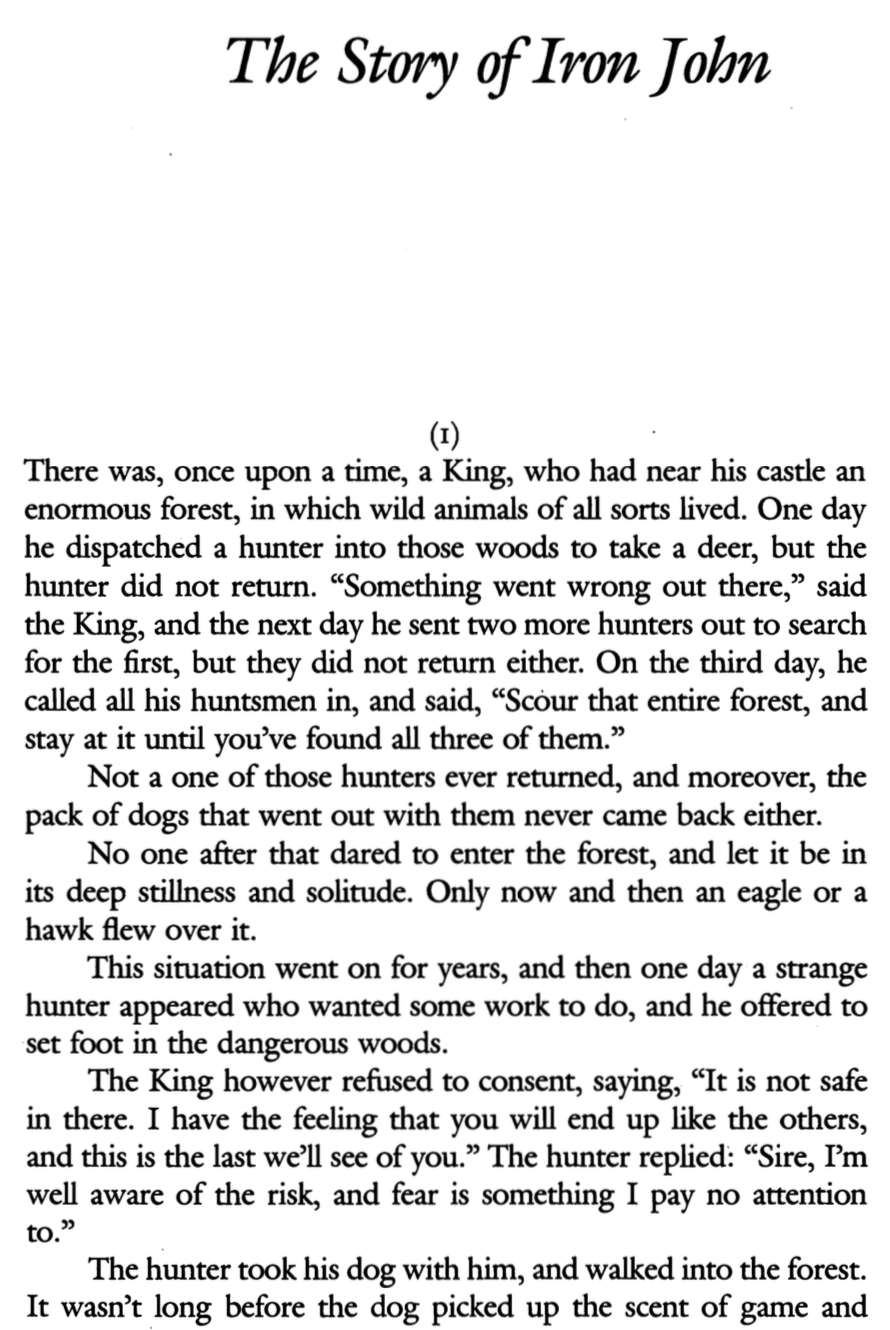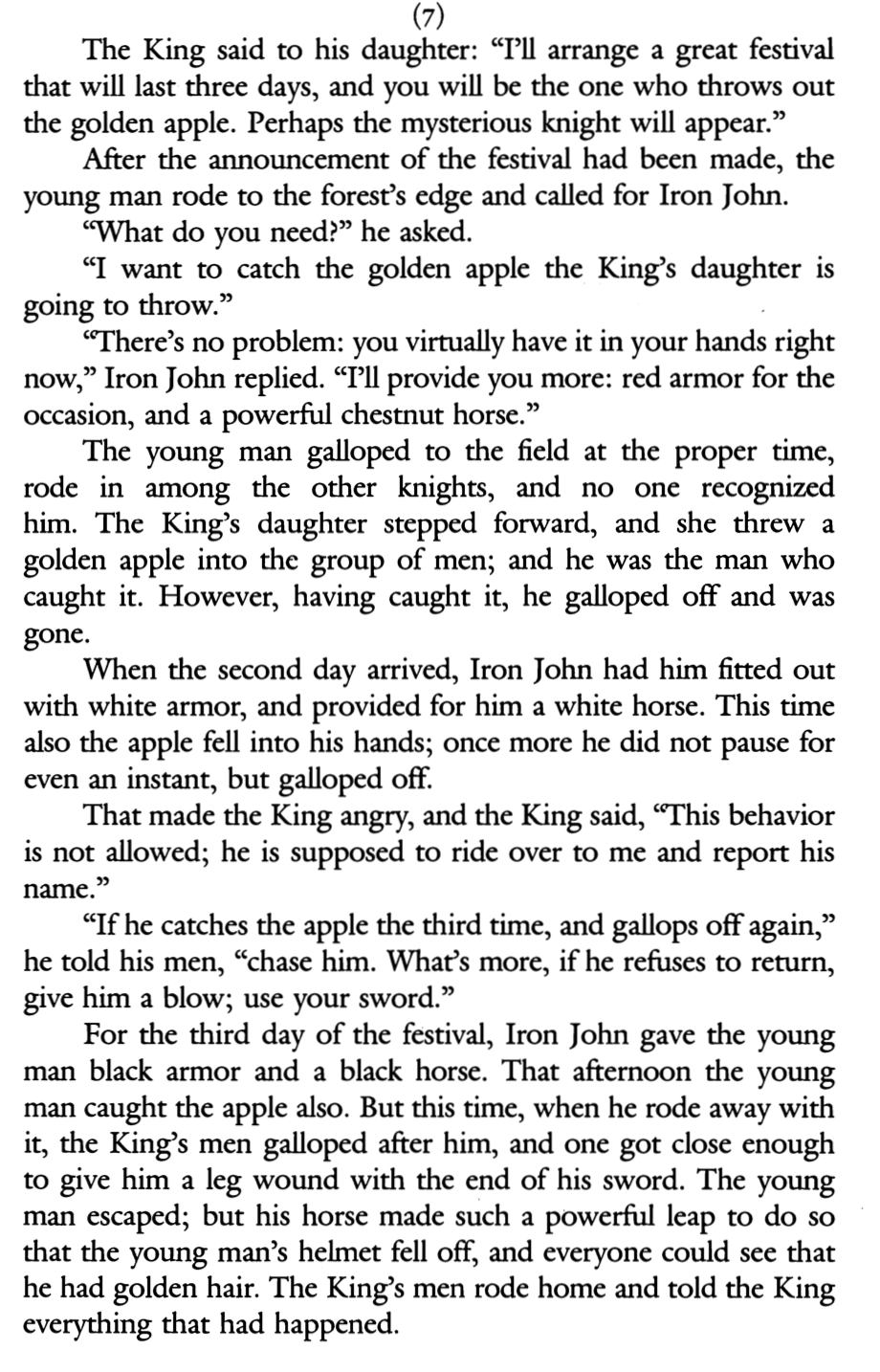I don’t know if you have noticed it too, but men are not the most popular people on the planet right now. On the whole, I think a lot of criticism directed towards our cohort is well deserved. The Metoo movement rightly calls out reprehensible behaviour that until just recently was largely glossed over by society, and many would argue still is; after all, we do have a self-declared misogynist in the Whitehouse.
Yes I know, there are plenty of good, decent men in the world still. Some days, I would even count myself among them. And yet, I too know in my inner core, how men have, and still do think of their counterparts, how even good men talk about women when they are not around. How even good men perpetuate stereotypical behaviour and reinforce traditional roles where women live in a subservient position.
So what does it mean, look like, to be a man? Robert Bly offers up some thoughts on this in his book Iron John. A book in which he exegetes a Grimm Brother’s fairy tale about a young prince and his journey towards manhood. Truthfully, Bly’s book is not an easy read. It is full of poetry, difficult prose, myth, and can easily bog down. I did persist and finished it just yesterday. Now I think I need to read it again. Not because I think that his book is the new manual on manhood or masculinity, not by any stretch. But it forced me to look inwards, self-examine and start asking myself difficult questions. It is not just my fifty year old self who needs to know how to be a man, but my fifteen year old son, who is teetering on the cusp of manhood as well. The stakes are kind of high.
One of the major themes throughout Bly’s book is his treatment of the “wild man”. He documents a number of variations of the wild man in numerous cultures (the hairy man, the hairy woman). I think that our contemporary society often celebrates the idea of a “wild man” a man of extremes, independent, daring, cast all caution to the wind. I know my son was smitten with this persona after watching Alex Honnold free solo El Capitan. And yet, Bly clearly states that the problem with manhood is not that we aren’t all wild men, but that most men are not at all in touch with the wild man. In other words, it is not about wanting to become the wild man, living in the woods, under a lake, covered entirely in hair, but rather, that most of us have never even ventured into the woods, and given ourselves a chance at encountering that character.
I don’t think that this means that we as men all need to buy an axe and a tent and head out into the woods to get in touch with the wild man either. Although that also seems to be a growing trend in my circles these days too.
I find it interesting that Bly highlights the genetic similarities between genders, and then focuses on the three percent which separates us. Men and women are almost genetically identical, and yet, three percent creates a vast difference. We are virtually the same, and yet not. My reading suggests that it is in trying to ignore that three percent, that leads many men to become frustrated, angry, and even at times tyrannical.
I actually don’t know the answer to the question posed in the title of this post. I know that I, like so many others, want my life to have meaning, purpose, significance, and authentic relationships. I think myself, and many men I know yearn for these things, and don’t know how to get our hands wrapped around them. I think the wild (nature) beckons many of us, because inherently the woods, the mountains, the rivers, the ocean offer up a glimpse into the transcendent, and speak whispers to that longing deep inside which we so deftly quell. And I don’t think it is enough to venture off alone either. We may encounter the wild man out there, by ourselves, but I know personally, it is in sharing a common experience where true meaning is found. Very few of us are cut out to sit atop a pole in the middle of the dessert.
If I am honest though, it is not merely company that the average man seeks. Life is full of company. We have company on our teams, in our work place, on committees, even within our families. Company rarely offers up honesty, transparency, or self evaluation. I have been enamoured for decades by the stories of the Inkling - a literary society made up of kindred spirits who regularly gathered at Magdelan College or the back of a pub in Oxford (the Eagle and Child, I have sat there, and drunk a pint in their honour). C.S. Lewis, J.R Tolkien, among many others. These stories have formed for me a standard of sorts, a demand for brutal honesty, self disclosure that truthfully I have rarely encountered (even in myself).
I think the wild man calls us out of our comfort zone, our habitual way of life, and beckons us into the woods. Into a place that is unfamiliar, where we are forced to examine our own limitations, deficiencies, and our skills and talents. It calls us down, into the ashes, into places we might not want to go; to acknowledge the wounds and stare into the grief we have accumulated along the way. I personally have found this to be mostly a solitary journey, but I don’t think it need be. I think it could be made by an intentional group of men and boys who follow the wild man into the woods. Sojourners with a common purpose built around vulnerability, to discover what it means to be a man, what it means to live life well, what it means to contribute to the betterment of our world. To ultimately discover what difference that three percent makes, in a positive manner, which celebrates the uniqueness and strength of masculinity without the need or tendency to resort to misogyny.
If you are inclined to read Bly’s rendition of the Fairy Tale, I have attached it below.









